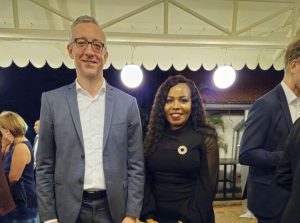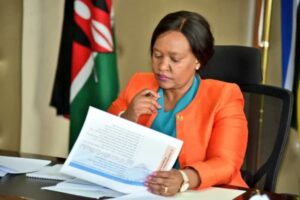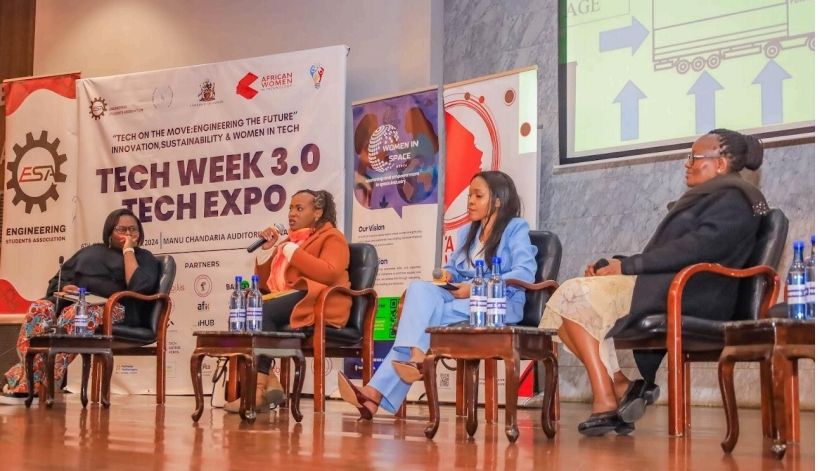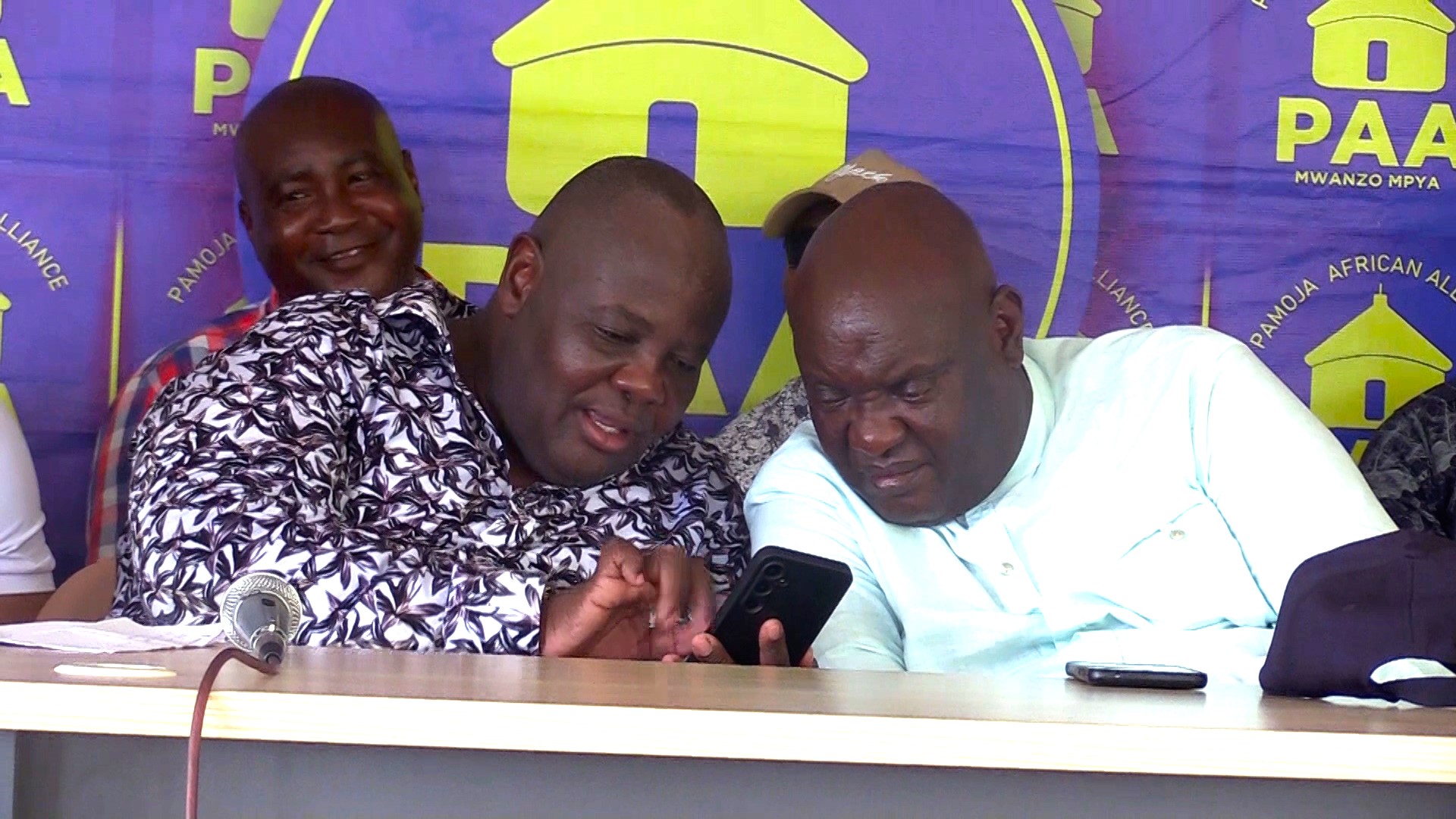Ukrainian First Lady Olena Zelenska says her country ‘cannot see the end of our suffering’
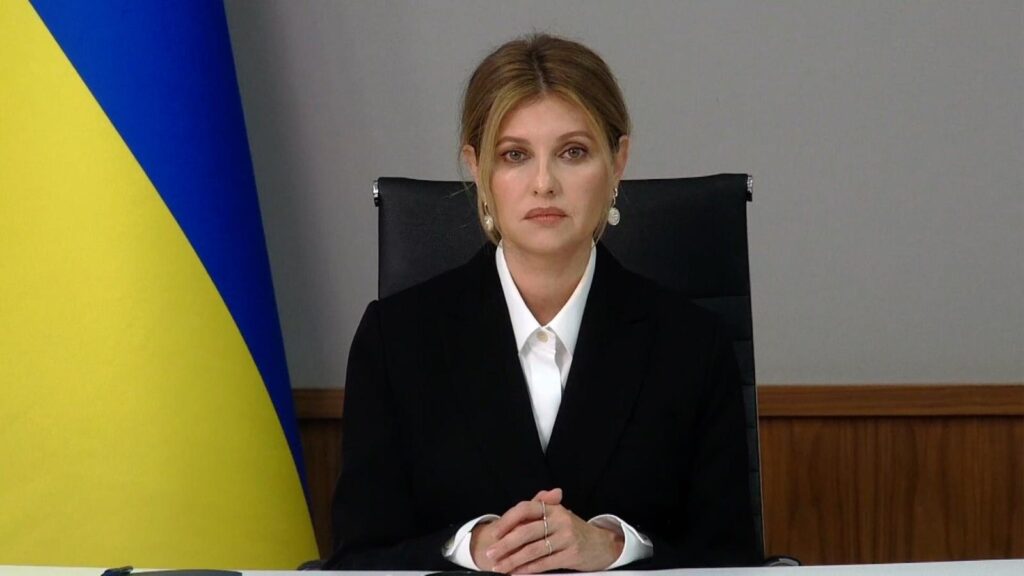
CREDITS CNN
In an international with CNN’s Christiane Amanpour, Ukraine’s First Lady Olena Zelenska said Ukrainians are grappling with the likelihood of a “marathon” as the country enters the fifth month of war with Russia.
“It’s very difficult to hold on for five months. We cannot see the end of our suffering, so we need to accumulate our strength, we need to save our energy,” Zelenska said.
Zelenska spoke to CNN at a crucial moment in the fight. Though Kyiv racked up a series of early victories in the initial aftermath of Russia’s invasion, the tide appears to be turning in the Kremlin’s favor, especially in the east.
When asked about her husband, President Volodymyr Zelensky, Zelenska said their “relationship is on pause, just as it is for all Ukrainians.
“We, just like every family, are waiting to be reunited, to be together again.”
Here is the full interview;
CHRISTIANE AMANPOUR, CNN HOST: First Lady Olena Zelenska, welcome to our program.
OLENA ZELENSKA, FIRST LADY OF UKRAINE (through translator): Hello, Christiane. And thank you for inviting me to do this interview.
AMANPOUR: Well, I’m really happy to talk to you, but obviously it comes at a very sad moment for you, for your country and a moment where, yet again, everybody realizes that anybody can be a target. After that missile attack on the mall, Kremenchuk, you know, nearly 20 people dead.
What is your reaction to that? How are ordinary people reacting to that?
ZELENSKA (through translator): Well, of course, we cannot react in any other way than be shocked. This is indeed terrorism. We cannot call this any other name.
Yesterday in Kremenchuk more than 1,000 people were in the shopping mall. This is an ordinary shopping mall. There were children and adults there. And you’ve just said how many people died; we still don’t know their (ph) final number.
We are all shocked. And unfortunately, we’re shocked yet again in this war. We were shocked many times. I don’t know what else the occupiers can shock us with.
AMANPOUR: So let me ask you, it is now into the fifth month of this war. Your husband, the president, told the G7 leaders that this war had to be ended by the end of this year.
Can I ask you about morale — your morale, your children’s morale, the people’s morale? Because everybody’s been so impressed by the heroic resistance that Ukraine has mounted, but what is the morale five months in now?
ZELENSKA (through translator): You know, in the first weeks and months and we were like sprinters, we were doing a short run at high speed. We gave it 200 percent.
But now, everybody now is running a marathon. We need to calculate our strength; we need to hold on.
As you said, it’s very difficult to hold on for five months. We cannot see — physically or mentally, we cannot see the end of our suffering. So we need to accumulate our strength, we need to save our energy, and all Ukrainians must do it.
It’s very difficult for all of us. And we need — we are trying to find joy in simple things, maybe stroke a cat or do something simple. But we’re all looking — we all look forward for this war to end.
AMANPOUR: That’s really poignant, what you say, try to do simple and beautiful things.
How do you specifically feel about your safety? We know, you told us when we last talked over e-mail in April, that at the beginning of the war — it happened, you barely were able to say goodbye to your husband. He sent you and the kids somewhere else in Ukraine to be safe.
Now, I understand you can come back to Kyiv more often, more regularly. How do you specifically feel about yours and your family’s safety?
ZELENSKA (through translator): Yes, fortunately, those two months when I didn’t see my husband at all, that’s in the past. I can see him sometimes in — for a short time and not very often, but I can physically feel him next to me.
This isn’t normal — it’s not a normal relationship when children cannot see their father and have to talk to him on the phone. So our relationship is on pause just as it is for many — well, all Ukrainians.
I would say that half of our population are apart, are not together. And we, just like every family, are waiting to be reunited, to be together again, to spend evenings, to have dinner together, to talk to the children about their things, and not only the children’s things but my daughter, for example, is a young adult now.
But we’re hanging in, we are — I like this image, we’re holding on just like that cupboard in Borodyanka when the occupiers bombed a building — bombed all the buildings there.
And we saw this photo of one of the buildings, and there was a wall remaining. And there was a wardrobe or a cupboard that stood undamaged. So we’re holding on.
We’re telling each other, how are you? I’m like that cupboard in Borodyanka. So I’m trying to hold on just like that cupboard.
AMANPOUR: It’s amazing you say that because I witnessed that myself in Borodyanka and we filmed it and we broadcast it; the cupboard, the table, the chair, the coat that was still remaining. So it was a still life.
Tell me — you’ve just spoken about your daughter, tell me about your son. He is much younger. And obviously, the war, he’s not being sheltered from it. He knows what’s going on.
What does he think about weapons, soldiers, about the military unfolding on the ground?
ZELENSKA (through translator): You know, there isn’t much you can hide from our children these days, and I’m not going to hide it. He lives in the same information space as me.
As a boy he is interested in military affairs. And he is watching our action, the arrival of weapons from our partners just like all Ukrainians. He knows about it all, about all kinds of guns that we’re using.
And on the one hand, it is a boy’s dream about heroic feats. But on the other hand, it’s very sad that my child is growing up like this That we have to — we were raising our children, we weren’t raising them for war, we were raising them for peace.
We wanted them to see their future without a war. So we are very much hoping that this military mood will somehow change to a peaceful one, and that he can imagine our life and that we can put our life on a peaceful footing.
AMANPOUR: Tell me about your work with mental health. In other words, the challenges faced by children and women in Ukraine right now, especially since there does seem to be a stigma in many parts of your world on the issue of mental health.
There doesn’t seem to be, you know, like in the United States or elsewhere, as many mental health providers. Is that a challenge?
ZELENSKA (through translator): Yes, you are right. Maybe this is something to do with the history of our country. Many people, especially elderly people, they lived under the Soviet Union when there was no quality mental health assistance at the time.
And many of them see something like this as — well, whenever they see a word that has the prefix “psycho” there, they feel this is something wrong and we need to overcome this stigma. And we need to make people realize that, if they are unwell mentally, they need to seek specialist help.
But I think stigma is about the elderly, that’s more of the older generation. Younger people, like me, have a different attitude. And indeed, they will seek, when they do need, mental health assistance.
We can see people who saw the death of their loved ones, who were held under occupation or maybe in captivity, many of them are children and many can have post-traumatic stress. So all of that needs to be diagnosed, and we need to treat this.
So we have a national program for mental health assistance. And we are trying to minimize the consequences of this horrific war for our society and for every person.
AMANPOUR: Last year you organized a conference, First Ladies and First Gentlemen in Kyiv. And you’re trying to do it again this year or you say you will do it again this year. Tell me what will be — what it will be about, what you’re trying to achieve.
ZELENSKA (through translator): Thank you for this question. It is important for me because last year, at last, we succeeded in creating this professional union, if you could say, for first ladies and first gentlemen because, until then, there was no such association.
And this enabled me in the first months to also get help from our first — for other first ladies for our humanitarian programs. So yes, we want to continue this again.
And of course, in — when the war is on, of course, not everybody can come physically. So we are trying to have a hybrid format so those who can join us by video, then, they will do so. There will be big video links between cities. And we will be discussing human resources, human capital, what can a person endure after such a crisis that we are undergoing.
AMANPOUR: It’s really important. And your country; and yourself; and your husband, the president, have done so much to keep Ukraine connected with the rest of the world.
And of course, since the beginning of the war we’ve all noticed, and we’ve all watched and listened to, the president’s speeches every night that he does with selfies or he’s filmed.
I just wanted to know, because you are a writer yourself and you’ve had not just a personal union, but a professional union, during your husband’s entertainment career — you’re a writer — what do you think of those speeches?
ZELENSKA (through translator): Thank you for your question. I’m not literary writer. I worked on screenplays, and it was a television show. Of course, I understand how a speech can be improved, to reach out to people.
But truly, my husband doesn’t need help. He knows what he needs to say and how to say it. Sometimes I — as everybody else, I am too impressed. And I think this was a very good idea.
He is in touch with the Ukrainians every night and everybody knows that he is in (ph) post, he’s on duty. And they find out important information from him that they need to know, you know, just to maintain calm and to go to bed peacefully and hope — with the hope that everything will be all right in the morning.
AMANPOUR: First Lady Olena Zelenska, thank you for joining us.
ZELENSKA (through translator): Thank you very much and goodbye.

